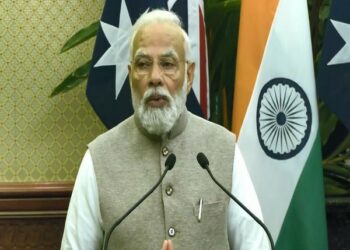On World Heart Day, an article in an English national daily caught my attention as a healthcare professional.
It focused on a CPR training event for police personnel organized by the National Cardiac Centre (NCC).
This training was particularly timely, especially following the tragic death of a young bodybuilder who suffered a cardiac arrest shortly after being crowned Mr. Nepal.
Such incidents underscore the need for improved heart health awareness and preventive measures in communities—an issue that the NCC appears to be addressing through various initiatives aimed at tackling the rising burden of heart disease in Nepal.
According to the World Health Organization (WHO), an alarming 86% of deaths from heart disease and other non-communicable diseases (NCDs) in Nepal occur prematurely, particularly in lower- and middle-income countries. Overall, NCDs account for over 70% of deaths in Nepal.
Worryingly, many individuals remain unaware of their health risks; a 2019 survey revealed that about 79% of the population are unaware of their high blood pressure, 54% do not know they have diabetes, and 98% are unaware of having high cholesterol.
In Nepal, where heart disease remains a leading cause of death, the proactive efforts of organizations like NCC are crucial in promoting preventive measures and enhancing public awareness.
This concerning lack of awareness raises important questions about the effectiveness of current public health strategies.
In this context, the National Cardiac Centre (NCC) plays a significant role in addressing the rising tide of heart disease.
I declare that I have no conflict of interest, and the information presented here is based on news from various reputable English and Nepali portals.
Established in 2020 in Basundhara, Kathmandu, NCC focuses on prevention and public awareness.
The center serves over 30,000 patients annually from various parts of the country and implements proactive measures to tackle the growing burden of cardiovascular diseases.
NCC employs a comprehensive approach by organizing health camps in rural areas, providing free cardiovascular risk screenings, and offering resources to help individuals understand their health risks.
NCC appears dedicated to public education and life-saving skills training, as demonstrated by its recent CPR training for police personnel, which prepares community members for emergencies.
For example, a recent rural heart camp reportedly served over 400 patients, showcasing the effort needed to reach underserved communities.
During these camps, the center also provides free medications to assist low-income families who may struggle to afford necessary treatments.
Another recent health camp, held on World Heart Day, successfully screened over 250 participants, reflecting NCC’s commitment to public health outreach.
One of the center’s notable initiatives is the anti-smoking campaign titled “Smokers Are Not Selfish,” which has reportedly helped over 1,700 individuals quit smoking.
This campaign addresses the severe health risks associated with tobacco use while providing heart check-ups, free cardiovascular risk screenings, and counseling services for those affected by smoking-related heart diseases.
Offering free services to such a large number of participants demonstrates a commitment to reducing the burden of heart disease in the country.
Additionally, NCC empowers health journalists through training programs, equipping them with the knowledge needed to accurately report on cardiovascular health issues and contribute to public awareness.
Recently, NCC launched a low-cost heart risk screening program specifically designed for low-income families.
This initiative aims to bridge the healthcare access gap, ensuring that essential screenings are available to those who need them most. Furthermore, NCC provides free telemedicine services to Nepali migrant workers in the Gulf region and Malaysia, where access to healthcare is often limited.
By increasing awareness, providing training, and engaging with communities, we can work together toward a healthier future and significantly reduce the impact of cardiovascular diseases in our society.
This remote service enables these workers to manage their heart health effectively, offering critical guidance and support to prevent heart-related complications.
NCC appears dedicated to public education and life-saving skills training, as demonstrated by its recent CPR training for police personnel, which prepares community members for emergencies.
The center also offers Basic Life Support (BLS) training to enhance the community’s response to cardiac events.
Founded by Dr. Om Murti Anil, a cardiologist with over a decade of advocacy for heart health, NCC aims to significantly reduce the burden of heart disease in Nepal.
Under Dr. Anil’s leadership, the center has become a vital contributor to public health, emphasizing preventive care, education, and free services for vulnerable populations.
In Nepal, where heart disease remains a leading cause of death, the proactive efforts of organizations like NCC are crucial in promoting preventive measures and enhancing public awareness.
As we observe World Heart Day this year, with the theme “Use Heart for Action,” it’s evident that the time for action is now.
By increasing awareness, providing training, and engaging with communities, we can work together toward a healthier future and significantly reduce the impact of cardiovascular diseases in our society.
(Writer, Dr. Sanjay Kumar Kushwaha is a medical practitioner)









Comment